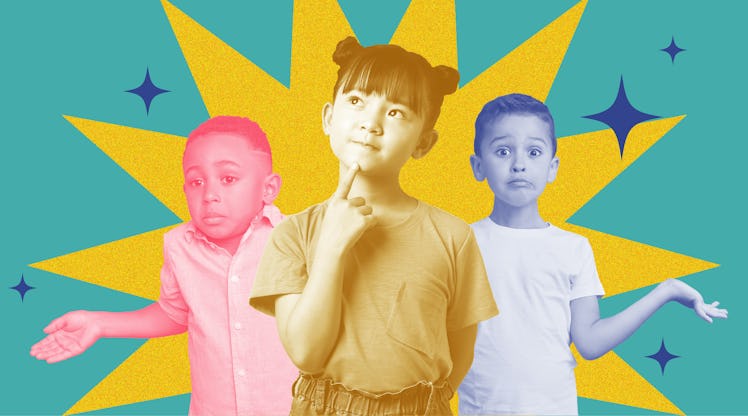What To Say To Your Kid When You Don’t Know What To Say About Race.
Your kids are going to ask you about race. Here's what to tell them.

This story is part of From The Start: A Parent’s Guide to Talking About Racial Bias, a series created in partnership with Johnson’s®, Aveeno® Baby, and Desitin®. We’re here to help parents tackle the difficult task of talking to their kids about race. With a topic this big, it can be hard to even know where to start — so we’ve teamed up with experts who have real answers to parents’ questions.
Race is a complicated and important subject. And to avoid talking to your kids about race can be seen as a disservice to them and to your community. However, tackling the complexities of discussing race in a way that makes it understandable is a very difficult thing to do. From time to time even the most well-informed parents can find themselves having to say, “I don’t know.”
And that’s OK! Or rather, it can be OK. To say, “I don’t know, don’t bother me about it” is unhelpful. A more proactive response would be, “I don’t know; great question. Let’s find the answer together.” The difference between the two responses could mean the difference between protracted ignorance and world-opening curiosity.
Hopefully, you have chosen to set your child on a path to world-opening curiosity. To that end, we’ve provided a primer of sorts for some of the basic-yet-fraught questions you’re likely to hear from your little ones. When a kid asks a question, it isn’t time for a parent to scramble to find the perfect answer, it’s a time to explore it with them — and learn alongside them.
Note: The responses are not a script, practice them to yourself and try to find ways to make the language your own.
Q: Why do I look different than my friends?
A:
Children look like their parents, so you look different from your friends because your parents look different from their parents. Of course, how you look isn’t very important, unlike how you act. Your friends are fun to play with because they’re kind, funny, or clever, not because they’re tall or they have black hair or green eyes.
More information: “What Is Race? Having the Conversation with Young Children,” part of the excellent PBS Kids for Parents resource Talking to Young Children About Race and Racism.
Q: Why do people think skin color matters?
A:
Treating people differently because their skin is different doesn’t make that much sense, does it? The reason people think skin color matters — and the reason they treat people differently based on the color of their skin — is in large part because other people do it. It’s something that people learn from their family, their friends, TV shows, movies, or the Internet. Even if an idea is false and hurtful, people will believe it if they trust the people who told them it was true in the first place. That’s part of why racism is such a hard problem to solve and also part of why it’s important for us to think about where our ideas about the world come from.
More information: A Kids Book About Racism by Jelani Memory.
Q: Does racism hurt people?
A:
Yes, very much so. Because it’s expressed in so many different ways, racism can hurt people in a lot of different ways. Racism can keep someone from getting a job that they want, or a house that they deserve. It can mean physical injury if they’re attacked because of their race. It can mean that places where people of mostly one race live and have fewer resources (parks, schools, libraries, doctor’s offices) than they need. And the stress of racism, both on those who receive it and those who express it, can lead to health problems.
More information: CNN/Sesame Street Town Hall on Race.
Q: What should we do?
A:
There’s a lot that we can do about racism. If you see someone at school do something that you think might be racist, do what you would do for any other kind of bullying: Tell an adult.
More information: Antiracist Baby by Ibram X. Kendi.
For more stories, videos, and information on talking to our kids about race, check out From the Start.
This article was originally published on